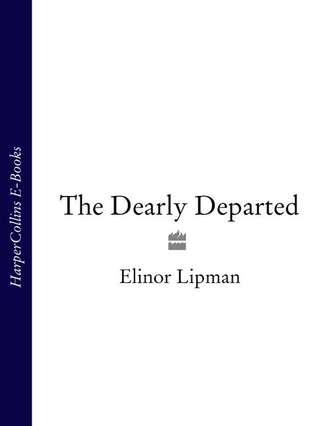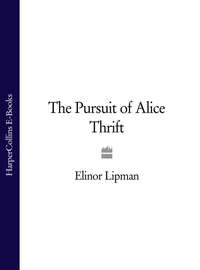
Полная версия
The Dearly Departed
Jennifer had radically chic and severe hair for King George, bangs short and straight, dark roots showing on purpose, blunt orange hair to her jaw. “I liked your mother a lot,” she told Sunny. “She could have switched to a Boston salon—a lot of the local actresses did that once they saw their name in lights. But not your mother. She even gave me a credit in the playbills. I’ll never forget that. She was as loyal as they come.”
“I know,” said Sunny.
“A brick,” said the elderly woman.
“I’ll be moving along now,” said the principal.
Jennifer reached up to touch Sunny’s hair. “You don’t get this from her,” she said.
Regina Pope was hurt to see a hairdresser summoned to the front of the line ahead of herself, but she understood: She had married the enemy. Worse, the enemy commander. Mrs. Batten had had to go to DeMinico with a season’s worth of Sunny’s scorecards and make her case. There was a federal law, she’d said, and she knew a lawyer. Sunny showed up at the next practice—all shiny new lady’s clubs and ironed culottes—to discover that no one had told the boys. Captain Randy Pope fashioned the unwritten rule: Make her life miserable. Move her ball. Drag your spikes in her line.
Sunny didn’t complain. Only Regina knew about the dead carp in her golf bag. Mrs. Batten would have cried, and Coach Sweet would have pretended to disapprove and would have made the boys stand in a row, like at a military tribunal, until one confessed. Over sandwiches in the drab green basement lunchroom, Sunny pronounced Randy Pope an idiot. She’d removed the rotting, stinking, dead-eyed carp and left it on the hood of his Tercel. In world history the next day, he repeatedly turned around, his mouth annular, his lips parting and puckering idiotically. Even Mr. Cutler, usually in the thrall of varsity athletes, told Randy to face front and stop doing whatever he was doing or there would be consequences. Regina thought Randy was cute—the top layer of his hair went blond around the middle of May—but she loyally took on her friend’s grudge as her own. At Senior Honors Day, Sunny received an award that a handful of women teachers had paid for themselves: a silver-plated loving cup inscribed to “Sondra ‘Sunny’ Batten, the graduating senior who, in the judgment of the faculty, breaks ground in the area of sports leadership.” The audience gave Sunny one of those slow-spreading, person-by-person standing ovations, and even though the winner appeared stunned as she shook Mr. DeMinico’s hand, her best friend knew that the look in Sunny’s eye had been not one of gratitude but of irony.
Four years later, Regina ran into Randy Pope leaving the Orpheus in West Lovell, after seeing a movie that Regina thought might be emblematic of a change in his worldview. It was Thelma and Louise, to which neither had brought a date or a friend. He invited her to a muffin house, where he drank herbal tea and told Regina he was embarrassed when he looked back at how he had acted in high school. As soon as she got home, she called her friend.
“Did he mention me specifically—I mean, the War Against Sunny?”
“I did. I said, ‘You certainly were a jerk when it came to Sunny Batten. What did she ever do to you besides beat you at match play?’”
“You said that?”
“More or less. A little more politely than that. But he knew exactly what I was talking about.”
“And what did he say?”
“He said he was ashamed of himself, the old him. He said if there were such a thing as a time machine, he’d set it back to the first day you came to practice.”
“And then what?”
“He’d say, ‘Welcome to the team, Sunny. We’re all behind you.’”
“It’s an act! Nobody changes that much in four years, especially a jock. He thinks if he acts humble and admits to being a jerk in high school, you’ll fall at his big feet.”
“He looks different,” said Regina. “He has a goatee and a mustache. It looks a little Shakespearean. And he’s thinking of joining the Peace Corps. B.U. humbled him, and that’s a direct quote.”
“Meaning, he learned that swaggering around the halls of B.U. didn’t get him what he wanted.”
After a pause, Regina said, “I really think he’s different. Or maybe he’s not so different. I mean, how would we know? Neither one of us ever had a conversation with him in high school.”
“For a reason!” said Sunny. “He started the deep freeze. If he hadn’t started it, or if he had come around, it wouldn’t have been so painful.”
“Mr. Sweet should’ve helped. That’s what Randy said: ‘Too bad Coach didn’t threaten to throw us off the team.’”
“Maybe he’d like to apologize to me now,” said Sunny. “Maybe you could give him my phone number and he could call and say, ‘I’m sorry I painted a bull’s-eye on your back. Sorry I couldn’t be big enough to recognize that a girl could beat me in golf. Sorry I was the biggest asshole on the team.’”
After a pause, Regina said, “You sound so bitter. More so now than when you were living through it.”
“Not more bitter,” said Sunny. “Just more willing to say it out loud.”
She’d been invited to their wedding, but sent her regrets. Regina didn’t mail Sunny a birth announcement, but after six months wrote a note and enclosed a photo of Robert, bald, drooling, happy. If Sunny sent a baby present, Regina didn’t remember what it was. But here was her son, two years and two months, the only child at the wake, asleep on her shoulder, too heavy for a wait this long. Women in line whispered, “Look at the little angel. Look how big he is. Sound asleep. Good as gold. She was Sunny’s best friend growing up, you know. Regina Tramonte. Regina Pope. Married Fran’s boy.”
The line inched forward. Warm hands and cold ones clasped Sunny’s. Shapes and voices moved past her, and on to view Margaret. Some hurried by, crossing themselves, but most touched the ebonized wood of her coffin, touched her hands, mouthed good-bye, hurried down the steps of the stage and back up the theater’s center aisle.
“Sunny?” said the last person in line. “I hope it was okay to come.”
Then Regina folded her free arm around Sunny’s neck, and the baby was squeezed between them, and even Dickie Saint-Onge felt an unaccustomed lump in his throat.
CHAPTER 8 Meanwhile, at Boot Lake
Overheard at the filling station by a jittery teenager buying nacho chips and Dr Pepper: A man had died; a man named Flynn or Fin, who lived alone on Boot Lake.
The teenager had no money for gas and wasn’t going to pull any more stunts in this lifetime. “Boot Lake?” he asked the cashier. “I used to swim there. How far is it from here?”
“As the crow flies? Two miles. But you have to get back on 12A again, then west on Old Baptist Road, past the gravel pit.”
“Right,” said the kid. “Now I remember.”
FINN glowed white in the dark, stenciled on the black mailbox at the head of a dirt driveway. No lights, no signs of life. He’d hide the truck first thing in the morning. No big deal. He’d switch plates first—he was in New Hampshire now, Live Free or Die—and find an empty garage, a normal place, like it belonged to some old couple who only took it out for church. He nosed the Ford down the narrow road through scrubby bushes. It was a smaller cabin than he expected from the long private driveway, but nicer than you’d think for a dead guy who lived alone. New paint on the trim, light, maybe yellow. The siding at night was dark, stained by weather, wet-cigar brown. He found the spare key under a chunk of pink granite, sitting like a stool pigeon next to the door. You’re not breaking in when you use a key, he told himself. You’re freeloading. Taking shelter. Resting. Like Goldilocks. He wouldn’t steal anything, except maybe eat what was in the refrigerator. The guy was dead. He wouldn’t mind. He could think, borrow some clothes, maybe call Tiff.
Because he wasn’t breaking and entering, he’d leave things neat. He’d make the bed and wash his dishes. He could say if they found him, “Look—I didn’t take nothin’. There’s your TV, your computer, your VCR, your CD player, your microwave oven. I was just taking shelter. If I was going to steal anything, I’d have done it by now.”
Shower. Shave. Wipe out the sink after. Hope the guy had disposable razors; too fucking creepy to shave with a dead guy’s blade. Fish after sundown. Deep-six the gun. Watch TV. Hope the guy had cable.
Find out if anyone had I.D.’d him, and if the cop had died.
CHAPTER 9 The Flight
Emily Ann diagnosed Fletcher’s bad mood on the flight as situational depression, richly deserved.
“Would you like to talk about your dad?” she tried.
“Absent father, lousy husband,” he snapped.
Emily Ann didn’t snap back. A man on his way to his father’s funeral deserved some latitude. “Do you think,” she began carefully, “that it’s doubly hard for you because of his deficiencies? Because you held out hope that someday you might become closer—like maybe when you had children of your own—but now that dream is lost, so it’s all the more painful?”
Конец ознакомительного фрагмента.
Текст предоставлен ООО «ЛитРес».
Прочитайте эту книгу целиком, купив полную легальную версию на ЛитРес.
Безопасно оплатить книгу можно банковской картой Visa, MasterCard, Maestro, со счета мобильного телефона, с платежного терминала, в салоне МТС или Связной, через PayPal, WebMoney, Яндекс.Деньги, QIWI Кошелек, бонусными картами или другим удобным Вам способом.



